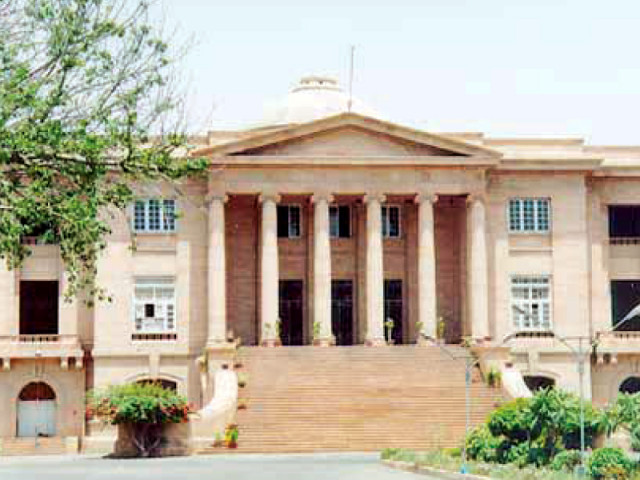Court told that Sindh government has formed provincial HEC despite ongoing case
SHC calls for comments on legal status of provincial HEC.

The Sindh govt’s decision to form the provincial higher education commission was tantamount to devolving higher education. PHOTO: FILE
Chief Justice Maqbool Baqar, who headed the bench, fixed the next hearing on April 8. He was hearing an application seeking urgent hearing of two petitions against the establishment of the provincial HEC.
Two identical constitutional petitions, questioning the rationale behind the government’s move to set up a provincial commission for higher education, separately filed by the former chairperson of the HEC, Prof Attaur Rehman, Pakistan Muslim League - Nawaz leader Marvi Memon and the Pak-China Foundation, are pending before the SHC since a year now.
On February 21, the Sindh Assembly had passed a new law - Sindh Higher Education Commission Act 2013 - to set up its own provincial body that will be given all the powers, including the authority to verify degrees awarded by any institution in the world.
Dr Rehman and Memon had pleaded the court restrain the Sindh government from establishing the proposed commission. “Higher education is the exclusive domain of the federal legislature,” they argued in the petition filed in February last year. They had submitted in the plea that the major functions of the HEC were being assigned to the Sindh HEC in a manner that there would be no cohesion in higher education and would be done independently by separate agencies, said their lawyer, Anwar Mansoor Khan.
The petitioner had claimed that the provincial government had no authority to act contrary to the rights stated in the law and the Constitution and destroy the fundamental rights of the citizens by eliminating the role of the HEC to suit its purposes.
“No law, which is contained in the Federal Consolidated List, can be promulgated by a province,” maintained Rehman and Memon, adding that the new law was a move to avoid the verification process of the lawmakers’ degrees. Till the final disposal of the plea, the court was also urged to grant a temporary stay against the establishment of any proposed commission in terms of the recently passed law.
Pak-China Foundation, in an identical petition, had objected to the formation of the provincial higher education commission. According to the foundation, the HEC was created as an autonomous body and it is being governed by an 18-member commission that works under a chairperson, who has the status of a federal minister.
Sheikh Mohammad Waliullah Alam, the foundation’s coordinator, maintained that the composition of the HEC reflects a balanced structure, as it has the representation of each province, as well as, the secretaries of education, and science and technology.
However, the petitioner said the Sindh government’s decision to form the provincial higher education commission was tantamount to devolving higher education to the provinces, which is ‘not permitted by any law’.
According to the petitioner, the Supreme Court had already declared that the HEC is a federal subject and it is protected under constitutional provisions in the federal legislative list. “Therefore, any act on part of the Sindh government against the Supreme Court’s [decision] is unlawful, and liable to be quashed, unless the federal government passes fresh legislation.”
The petitioner was of the view that the Sindh is not alone in having made attempts at forming a provincial body to deal with higher education issues in the province. Khyber-Pakhtunkhwa has already established a provincial education commission, while the Punjab and Balochistan are taking steps in that direction as well.
On Wednesday, the petitioners filed an application informing that the government has made the commission functional and has also appointed its chairperson even though the matter is subjudice.
Published in The Express Tribune, March 6th, 2014.



















COMMENTS
Comments are moderated and generally will be posted if they are on-topic and not abusive.
For more information, please see our Comments FAQ